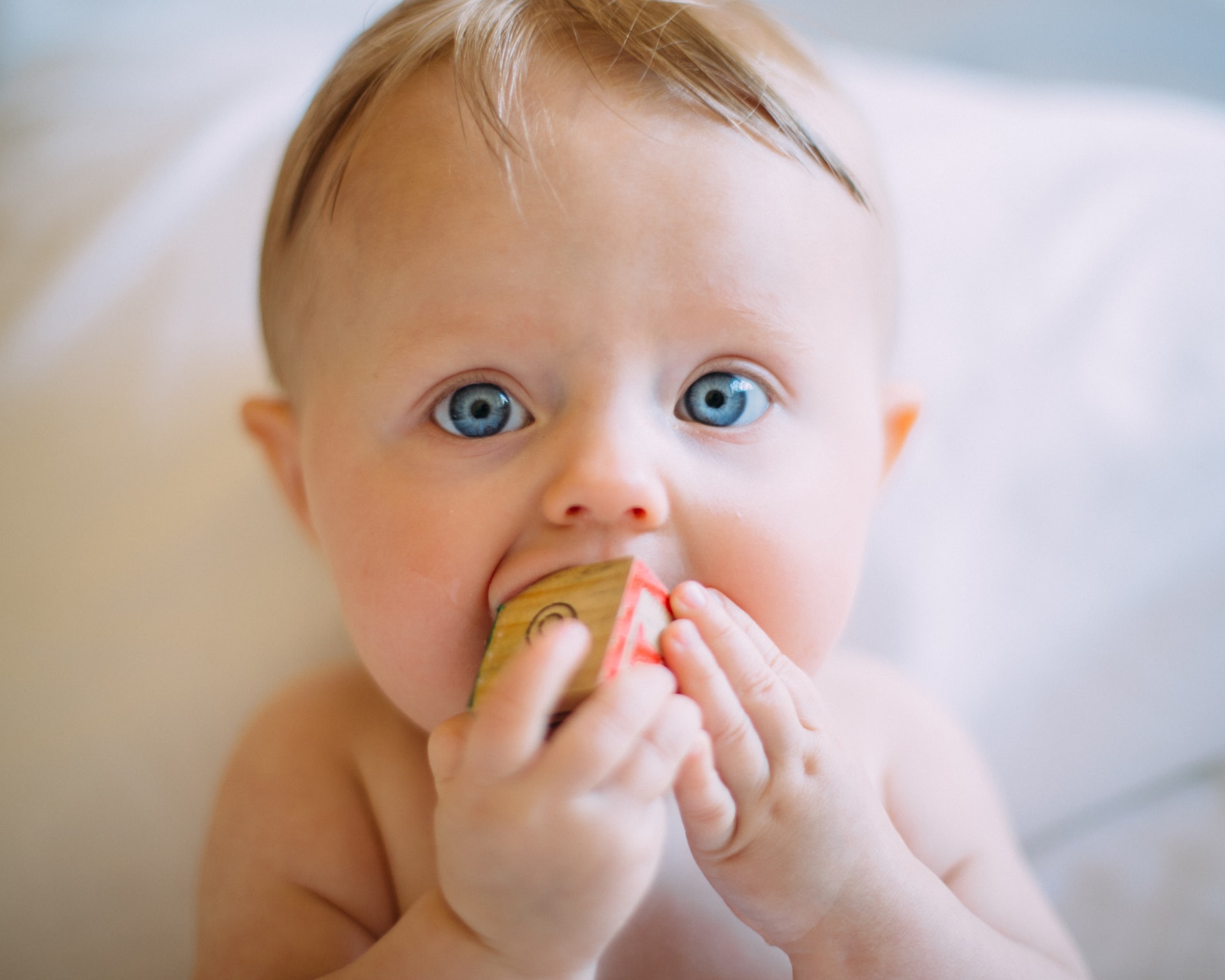
With a trusted children’s dentist and some accurate information, parents should have everything they need to take excellent care of their infant’s oral health. In this article, you’ll find some interesting facts about preventive oral care for babies, teething, and first teeth. We’ll also provide helpful tips and information to help you through the trials of teething.
Should you have questions or need a children’s dentist in the Coffs Harbour area, call Magic Smiles and schedule an appointment with our family-friendly dental team. We provide gentle, professional dental care for children, and we enjoy teaching parents how to take great care of their baby’s oral health, even before teeth erupt.
Let’s start now with what you can expect inside your little one’s mouth in the first 36 months of his or her life.
Daily Oral Care for Infants
Many parents are unaware that the bacteria that cause cavities is transmitted to an infant through his parents’ saliva. This occurs through kisses, sharing utensils, and other instances when the parent’s saliva enters the baby’s mouth, and this is completely natural. Though the infant has no teeth, the bacteria reside in the mouth until teeth erupt.
Cleaning your infant’s mouth before and after teeth erupt is important. Before teeth erupt, use a soft, clean, wet cloth to gently rub the baby’s gums, tongue, and the interior of his cheeks. Repeat this a few times a week or daily.
Teething
Between ages three and six months, your baby should begin teething. You’ll notice symptoms that include but are not limited to:
- Excessive drooling
- Swollen, red gums
- Slight cough
- Fussiness and irritability
- Lack of nighttime sleep
- Disturbance in his eating pattern
- Gnawing on his hands, toys, and anything else within reach
- A slight temperature, usually under 101
Teething is uncomfortable, but you can soothe your baby’s pain by offering a refrigerated (not frozen) teething toy or spoon; gently rubbing his gums with your clean finger; offering a teething biscuit; or, with your pediatrician’s approval, giving the baby an appropriate dose of an infant pain reliever. Note that over-the-counter pain relievers are only appropriate for babies over 6 months of age.
Expect teething to occur on and off throughout the baby’s first few years.
First Teeth
Though all infants are different, for most, the lower center teeth erupt one after the other, followed by the top center teeth. Next come the two teeth on either side of the top center teeth, then those on either side of the bottom center teeth.
By three years of age, your little one will probably have all 20 primary teeth, also called baby teeth or temporary teeth.
Care for your baby’s teeth by using an infant toothbrush and un-fluoridated infant toothpaste or water. Brush in the morning and evening, and when multiple teeth erupt you can add flossing to the routine. Also, only allow your baby or toddler to fall asleep with a bottle or cup that contains water. Milk, juice, and other beverages can cause a painful, destructive dental condition called baby bottle tooth decay.
Your Coffs Harbour and Woolgoolga Children’s Dentist
Our team at Magic Smiles wants to partner with you to help your little ones enjoy healthy teeth and bright smiles when their teeth erupt and throughout life. Call us today at one of our three locations or complete a contact form on our website to schedule a consultation for you or an appointment for your baby.


